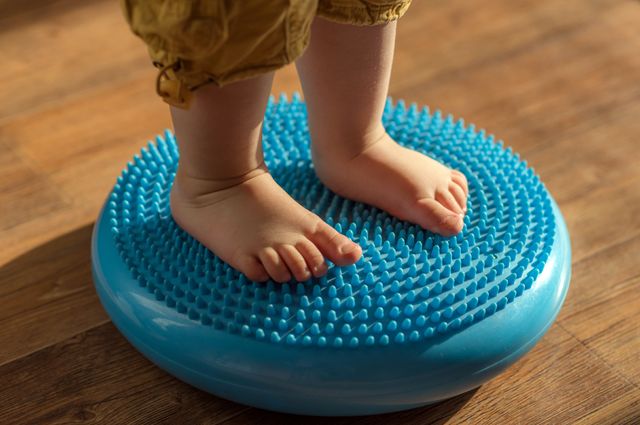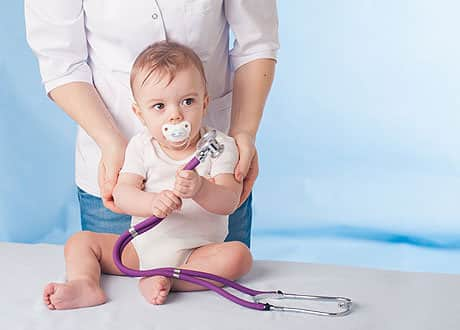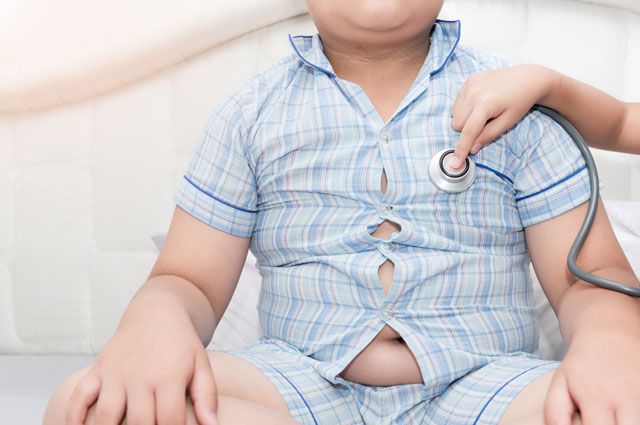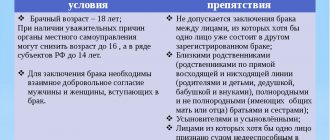Children's health must be monitored at least until they reach 18 years of age. It is up to this age that parental responsibilities also include regular medical examinations. In practice, it looks a little different.
Usually, mothers of babies are actively involved in the health of their babies; as soon as the babies grow up and stop constantly getting sick from ARVI, control is weakened. But in fact, the national health strategy for children provides for a number of medical examinations that should be completed in order not to miss any health problems.
Neonatal examination
While still in the maternity hospital, the child, under the supervision of doctors, undergoes several examinations at once. So, he is regularly examined by a pediatrician for his health status and basic parameters. In addition, even within the framework of the medical institution, material is taken from the baby for neonatal screening for such dangerous pathologies as hypothyroidism, phenylketonuria, cystic fibrosis, adrenogenital syndrome, galactosemia, and audiological screening. This measure makes it possible to identify serious diseases in the early stages and take timely measures to treat them.
During the first year of life
Up to a year, the baby regularly sees doctors. Several tests and examinations are expected in the first 12 months. So, at 1 month, the baby visits the clinic with his mother for the first time (before that, he is examined every week at home, which is called newborn patronage). Here he must visit several specialists at once - a pediatrician, a neurologist, a surgeon, an ophthalmologist. In some cases, it is recommended to go to the dentist, even though the baby does not yet have teeth, even baby teeth.
Article on the topic
CT, MRI, ultrasound, X-ray: what types of studies are there and why are they needed? In addition, ultrasound studies of the abdominal organs, hip joints, kidneys, ECG, and audiological screening may be offered. Also, at an early age, before the fontanel closes, doctors suggest examining the brain using ultrasound.
At 2 months, the baby comes to the pediatrician again for an examination; blood and urine tests may be prescribed to monitor the condition of the organs.
At 3 months, she will be examined again by a pediatrician, with whom the orthopedist will also take a look at the baby’s condition. In addition, it is during this period that the first vaccinations usually occur, which means that tests must be taken. A neurologist also joins the examination.
Then the child visits the pediatrician monthly on special healthy child days and, if necessary, receives a referral to specialized specialists. So, for example, you need to see a neurologist every three months during the first year. Regularly undergoes tests when it is time for scheduled vaccinations. It is worth remembering that before each vaccination, the baby must be examined and examined by a doctor in order to avoid complications due to a missed disease.
At one year, the baby completes this cycle of monthly medical examinations with a full examination. He should visit a pediatrician, neurologist, surgeon, orthopedist, ENT doctor, ophthalmologist. Tests include standard clinical tests and ECG. The heart is examined to assess the risks of abnormalities and to monitor the closure of the patent foramen ovale.
Diabetes in a child. How not to miss a disease Read more
Pediatrician
The first doctor you need to visit when your baby is one year old is, naturally, a pediatrician.
During the examination, the pediatrician will take anthropometric measurements of the baby (measure height, weight, head and chest circumference), assess his physical development, using palpation (palpation) and auscultation (listening with a phonendoscope), analyze the functioning of all organs and systems, and also give directions for additional examinations.
At one year of age, the baby is required to undergo a general blood and urine test.
For the first time in a year, unless such a need has arisen before, a scraping is performed for enterobiasis and feces are tested for helminth eggs. Subsequently, these tests will be taken annually, and even more often when visiting kindergarten.
At 1 year of age, the baby is given a tuberculin test or Mantoux test. From this age, the Mantoux test should be performed annually.
From one to three years
If the baby’s health is good, he does not get ARVI endlessly, he will have to visit the doctor three times from one year to two and once a year after that. So, at one year and three months you need to see a pediatrician, the same at one and a half months. It is worth including vaccinations into the schedule. At two years, medical examination involves an examination by a pediatrician, a dentist, and in some cases it is recommended to undergo a psychiatrist. At three years old, a full examination again by a wide range of doctors, including a pediatrician, neurologist, pediatric surgeon, dentist, and ophthalmologist. ENT. A gynecologist for girls and a urologist-andrologist for boys are also added. Such specialists are needed at such an early stage to assess the correct structure of the organs of the reproductive system and to see potential problems that may arise due to improper care.
The child also undergoes clinical tests for a general check of the processes that occur inside.
Which doctors should I see if I am between 51 and 74 years old?
The first stage of medical examination for this age category includes:
- measurement of height, body weight, waist circumference, determination of body mass index;
- blood pressure measurement;
- conducting a general blood test (hemoglobin, leukocytes, ESR);
- determination of the level of total cholesterol in the blood using an express method;
- determination of fasting blood glucose levels (using the express method is allowed);
- determination of absolute cardiovascular risk (for patients under 64 years of age);
- individual preventive counseling - for patients under 72 years of age with high relative and very high absolute cardiovascular risk, obesity, hypercholesterolemia with a total cholesterol level of 8 mmol/l or more and/or smoking more than 20 cigarettes per day;
- fluorography of the lungs (not performed if fluorography, radiography (fluoroscopy) or computed tomography of the chest organs was performed in the previous calendar year or in the year of medical examination);
- electrocardiography at rest;
- measurement of intraocular pressure (performed once a year);
- for patients of both sexes: stool test for occult blood (if you are from 40 to 64 years old, the test must be taken once every two years, if from 65 to 75 years old - annually);
- for men: determination of the level of prostate-specific antigen in the blood (carried out at the ages of 55, 60 and 64 years);
- for women under 64 years of age: examination by a midwife, including taking a smear from the cervix for cytological examination;
- for women: mammography (at the age of 40-75 years, performed once every 2 years).
If you have taken any of the tests listed or had any of the examinations listed in the past 12 months, their results may be included in the medical examination.
Which doctors should I see if I am 75 or older?
Medical examination at 6 years
There will be more examinations here, because preparations for school begin. Children are advised to go through a whole list of doctors. These include pediatricians, neurologists, surgeons, dentists, orthopedists, ophthalmologists, ENT specialists, a psychiatrist, a gynecologist and a urologist-andrologist. You will also need to go through a series of examinations - clinical blood and urine tests, ultrasound of the abdominal organs, kidneys, ECG, echocardiography.

Put children on their feet. How to protect yourself from flat feet? More details
Content
- List of doctors: what specialists does a child need to see every year? Pediatrician
- Neurologist
- Surgeon
- Dentist
- Ophthalmologist
- Otolaryngologist
- Psychiatrist

This is due to the fact that at this age children often get sick. However, many pathologies do not appear outwardly or their development is slow. And only during medical examination can specialists detect the disease in time and prevent consequences. The child can be registered at a dispensary and constantly monitored by a pediatric specialist with a narrow profile and undergo examinations. At this age a health group is also assigned. According to it, an individual schedule of physical education classes, visits to certain specialists, etc. is drawn up for the child.
Medical examination at 10 years
In the first ten years of age, a global examination is provided for children, which, by the way, is often organized in groups at school. Children are allocated separate time and given a referral to the clinic to which the school is attached.
As part of such an examination, children undergo a pediatrician, neurologist, dentist, endocrinologist, orthopedist, ophthalmologist, endocrinologist and ENT specialist. They take tests.
Until the next stage, it is advised to go to the pediatrician once a year for examinations.

Parental control. At what age do children tend to gain weight? More details
Which doctors should I see if I am 75 or older?
The first stage of medical examination for this age category includes:
- measurement of height, body weight, waist circumference, determination of body mass index;
- blood pressure measurement;
- conducting a general blood test (hemoglobin, leukocytes, ESR);
- determination of the level of total cholesterol in the blood using an express method;
- determination of fasting blood glucose levels (using the express method is allowed);
- fluorography of the lungs (not performed if fluorography, radiography (fluoroscopy) or computed tomography of the chest organs was performed in the previous calendar year or in the year of medical examination);
- electrocardiography at rest;
- measurement of intraocular pressure (performed once a year);
- for women aged 75 years: mammography;
- for patients of both sexes aged 75 years: stool test for occult blood.
If you have taken any of the tests listed or had any of the examinations listed in the past 12 months, their results may be included in the medical examination.
Clinical examination at 15-17 years old
The body changes rapidly during these years, and at the same time the load increases. Therefore, the examination of children in this age category will be quite extensive.
It includes the passage of such doctors as a pediatrician, surgeon, dentist, endocrinologist, neurologist, orthopedist, ophthalmologist, ENT, psychiatrist, gynecologist and urologist-andrologist. Tests such as clinical blood and urine tests, ultrasound of the abdominal cavity, kidneys, and ECG are also offered. Many examinations are carried out as part of the preparation of a certificate for admission to a university.
Program "I'm going to school"
1 step
First of all, the child needs to undergo basic blood, urine and stool tests (at the Children's Health CDC, under the “I'm going to school” program, your child will undergo detailed tests).
Step 2
It is important to conduct the most necessary ultrasound and functional studies (ECG) , to exclude pathologies of the abdominal organs, kidneys, urinary tract, heart, thyroid gland (in our region this should be given special attention) and reproductive system organs.
Organization procedure
At different age periods, the “set” of doctors who should examine the child varies. When a program is being drawn up, doctors pay special attention to taking into account the statistics of characteristic pathologies for a particular age. For example, it is believed that most hearing problems in children are identified in the first year of life. But it is not advisable to assess the condition of the reproductive system before the child turns 3 years old.
The given standard medical examination program can be expanded and supplemented as necessary - this happens in cases where a child has some deviations from the norm. It is important to understand the need for timely medical examinations. After all, a child’s body is more flexible than an adult’s, so many incipient pathologies can be quickly cured, preventing them from becoming chronic. In adulthood, coping with the consequences of diseases from childhood is usually difficult, if not impossible.










